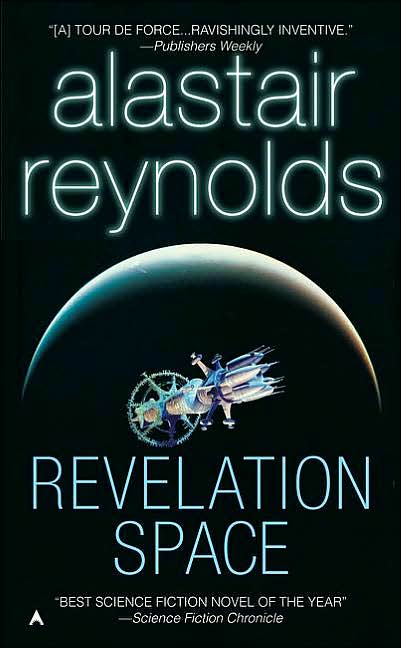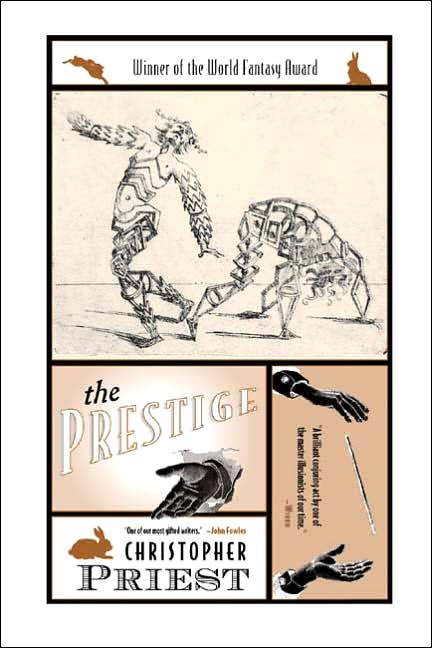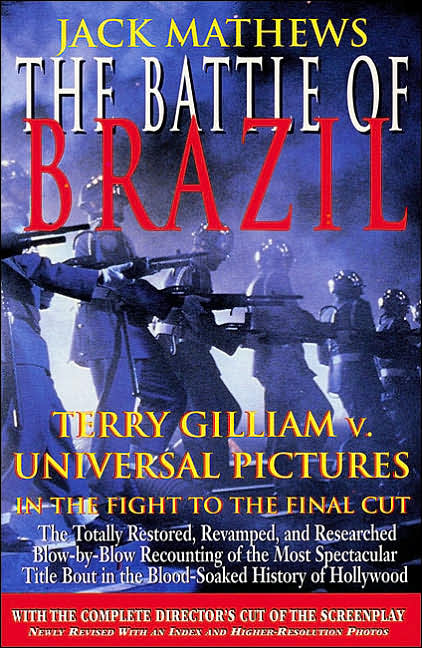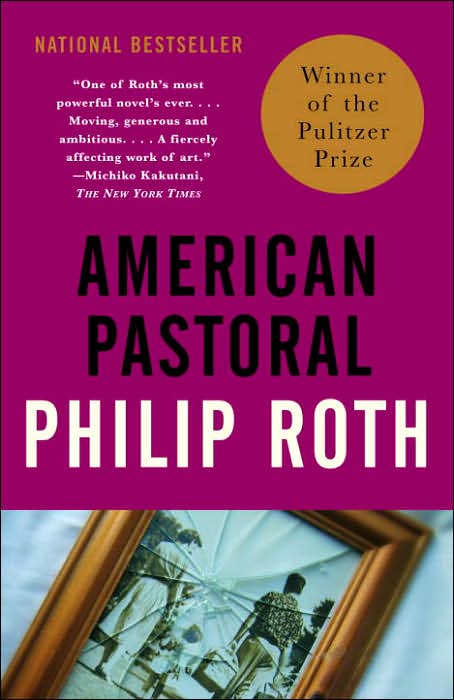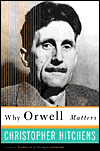Attention, People of Earth: Touchstone releases eight character-specific and guide-themed posters for Hitchhiker’s. Also, some of y’all might have seen this extremely negative first review of the film over at Metafilter. Well, I’d take it with a grain of salt. Not only does this guy seem Marvin-like in the extreme, he has a nasty purist streak that rivals those of the most-impossible-to-satisfy Tolkien fans. At least in this corner, the jury’s still out.
Category: Authors
Yeats it ain’t.
“Oh rightly satcheled suture sieves, oh grundled grebes of yore, upon my petti-coated-clippings of finger and toenails.”
Moriarty of AICN picks a winner in the Vogon poetry contest noted here a few months ago and, Lordy, it’s pretty bad. Only a few weeks until Hitchhiker’s, folks…
Self-Ordained Professors’ Tongues.
An event of note last night here at Columbia’s Miller Theater: Music critic Greil Marcus, Princeton historian Sean Wilentz, and Oxford poetry scholar Christopher Ricks came together to contemplate Dylania old and new. Marcus began by speaking on the many lives of “Masters of War,” including Dylan’s Gulf War I Grammy performance and the recent “Coalition of the Willing” episode at a Boulder, Colorado high school. Wilentz followed by discussing Dylan’s debts of gratitude (and debt to history) in the recent Chronicles. And Ricks punned his way through a priceless disquisition on Blonde on Blonde and the differences among poetry, prose, and song, finishing his remarks with a defense of “Just Like a Woman,” which apparently has been deemed misogynistic in certain academic corners. (I asked the panel about the mixed reception to Masked & Anonymous, and Wilentz & Marcus in particular praised it as an underrated film…I’ll probably have to see it again at some point.)
All in all, it was quite an interesting evening of Dylanology, although I must admit, I was a bit put off by some of Ricks’ comments in the Q&A session — He called “Masters of War” (and, for that matter, “The Death of Emmett Till“) self-absorbed and overly tendentious songs, which I think there’s a good deal of truth to, but then proceeded to castigate the audience for indulging its generally anti-Bush sentiment (via some mild chuckling) during Marcus’ Coalition of the Willing anecdote. Ricks began by deploring knee-jerk political responses in either direction as a typically American (and occasionally Dylanian) vice…ok, fine, that’s a criticism we’ve all heard before. “Fist fighting is here to stay,
It’s just the old American way.” But Ricks then went on to bemoan the tribulations faced by his poor right-wing friends in Massachusetts, who thought — correctly, in Ricks’ view — that “John Kerry didn’t deserve the presidency.” (As you might expect, this gave the smattering of right-leaning folk amid the audience a chance to clap vociferously and to indulge anew the currently-popular fallacy that they’re an oppressed minority.)
Yes, unfortunately, the decline of civility in debate and the “MacNeill-Lehrerization” of every issue into two opposite and irreconcilable poles are lamentable repercussions of the way politics is practiced today, as Jon Stewart famously noted on Crossfire several months ago. (Or, as Bob once put it, “Lies that life is black and white spoke from my skull…Ah, but I was so much older then,
I’m younger than that now.“) But that doesn’t mean that Americans’ opinions of the war in Iraq aren’t well-thought out and hard-won. Ricks treated the issue as basically six-one, half-dozen-the-other, that to voice an opinion about the Iraq War is somehow irresponsible and — worse — uncouth. (Whatsmore, I had no idea what anybody’s politics were until Ricks began complaining about the presumed incivility in the room, at which point the audience immediately bifurcated into lefties and righties.) In sum, incivility is a serious problem, sure. But, for that matter, so is war.
The Q&A aside, though, the evening made for an eloquent appreciation of the many gifts of Bob Dylan, gifts further illuminated by the warmth and regard with which Marcus, Wilentz and Ricks held these songs to the light and uncovered some of their fragile tendrils of meaning and allusion. And if nothing else, the conference made for an excellent excuse to go home and delve into Bob’s back pages for the remainder of the evening, and listen to old songs with new ears.
Ghostbusters.
“[B]y writing his autobiography himself, the madcap Central European actor Klaus Kinski produced the most brutally honest book about the motion picture industry ever. Here is a typical passage: ‘No outsider can imagine the stupidity, blustering, hysteria, authoritarianism and paralyzing boredom of shooting a flick for Billy Wilder.’ No ghostwriter would ever have written a passage like that, because ghostwriters are by nature timid, diplomatic, gun-shy.” Um, really? In the Sunday NYT Book Review, author Joe Queenan complains about the burgeoning ghostwriting industry. I think he needs to meet more ghostwriters.
Dent, Arthur.
 Don’t forget the llama food…Hitchhiker’s meets Douglas Adams’ Bureaucracy in this new shot from the forthcoming film. Apparently, in a deviation from the book, Arthur, Zaphod, and Ford [Spoilers — Click to Reveal] have more problems with paperwork in an impromptu visit to the Vogon homeworld.
Don’t forget the llama food…Hitchhiker’s meets Douglas Adams’ Bureaucracy in this new shot from the forthcoming film. Apparently, in a deviation from the book, Arthur, Zaphod, and Ford [Spoilers — Click to Reveal] have more problems with paperwork in an impromptu visit to the Vogon homeworld.
The Heart is a Lonely Hunter.
Mark over at Nofeblog has collected some of the more compelling eulogies of Hunter S. Thompson, including ones by cartoonist Ralph Steadman and colleagues Tom Wolfe and David Halberstam.
Clearing the Book Bin.
In a perfect world, I’d write up book reviews here on GitM with the consistency and length of my movie posts. (Then again, in a perfect world, I’d also be able to dunk a basketball.) But, time being a factor, here instead are some short thoughts on non-history books recently consumed.
Revelation Space, Alastair Reynolds: “Working alone, living within the cramped confines of the pod, Sylveste spent weeks learning how to jump-start the lighthugger’s crippled repair systems…When the recuperative processes were in swing he was able to sleep, finally — not daring to believe that he would actually succeed. And in those dreams, Sylveste gradually became aware of a momentous, paralysing truth…before he regained consciousness, something had happened. Something had reached into his mind and spoken to him. But the message that was imparted to him was so brutally alien that Sylveste could not put it into human terms. He had stepped into Revelation Space.“
I’d heard a lot of good things from sci-fi aficionados I trust about the Revelation Space arc of Alastair Reynolds, who holds a PhD in astronomy and clearly knows his stuff. In fact, one of the strengths of Revelation is in how Reynolds grounds what amounts to a sci-fi space opera in hard science ideas. For example, I don’t think I’m giving too much away to say that the book offers a hypothetical answer to Fermi’s Paradox, or that Hawking’s singularity theories play a significant role in the denouement. Of course, some scientific quandaries, such as the ability for ships to move at or around lightspeed, are left unexplained (it’s apparently been figured out by a shadowy, mysterious group known as the Conjoiners.) But, even those flights of fancy carry the touch of realism, as indicated by the time disparities throughout the book — Often, a character will get locked away in jail or have some other ugly incident befall him or her, and then fifteen years will pass in the space of a few paragraphs (or at least fifteen years relative to the prisoner — the time is shorter on the ship en route.)
These clever ideas notwithstanding, however, I found Reynolds’ writing style a bit dense and unwieldy at times. All in all, I ended up enjoying Revelation Space, but it was also a bit of a slog. In fact, I ended up putting it down for several weeks. There are four books (and counting) in the series, and I’ve heard they get better as they go along…but still, I’ve been putting off delving into #2, the prequel Chasm City, until I’ve got more time on my hands.
Children of God, Mary Doria Russell: “It was absurd in hindsight — the very idea that a handful of humans might have been able to do everything right the first time. Even the closest of friends can misunderstand one another, he reminded himself. First contact — by definition — takes place in a state of radical ignorance, where nothing is known about the ecology, biology, languages, culture, and economy of the Other. On Rakhat, that ignorance proved catastrophic. You couldn’t have known, Vincenzo Giuliani thought, hearing his own pacing, but remembering Emilio’s. It wasn’t your fault. Tell that to the dead, Emilio would have answered.“
As y’all may or may not remember, I highly recommended Mary Doria Russell’s The Sparrow last fall, and have only now gotten around to reading the sequel, in which both Father Emilio Sandoz, sole survivor of the ill-fated Jesuit expedition, and the planet of Rakhat grapple with the consequences of the abortive, abysmal First Contact described in Book One. An anthropology PhD (I promise, I read sci-fi by non-PhDs too — this back-to-back was a fluke), Russell has constructed a clever and refreshing science fiction tale here that seems very far removed from most standard forays in the genre. I preferred Sparrow to Children — in fact, in some ways I think the resolution of the latter book detracts from the power of the first — but they’re both well worth-reading and readily accessible to people who get easily aggravated by the usual sci-fi literary tropes.
I will admit that at times I felt that Russell’s characters all spoke with the same voice — they all have the same wry intelligence and self-deprecating humor, and they tend to react in similar ways when pushed to the wall. But, it’s a forgivable lapse, and besides, given that this is the type of mistake made by newer authors, the tendency may well be rectified in her newest, just-published book, A Thread of Grace (No more sci-fi for now — Grace is a work of historical fiction set in WWII Italy.)
The Prestige, Christopher Priest: “First let me in a manner of speaking show you my hands, palms forward, fingers splayed, and I will say to you (and mark this well): ‘Every word in this notebook that describes my life and work is true, honestly meant and accurate in detail.’…Already, without writing a falsehood, I have started the deception that is my life. The lie is contained in these words, even in the very first of them. It is the fabric of everything that follows, yet nowhere will it be apparent. I have misdirected you with the talk of truth, objective records and motives. I have omitted the significant information, and now you are looking in the wrong place.”
After finishing up Batman Begins, Memento‘s Chris Nolan will apparently be making this film, and it should be a doozy. Tales of turn-of-the-century prestidigitators have perhaps been somewhat overdone in recent lit — At times, The Prestige reminded me of both Glen David Gold’s Carter Beats the Devil and the first “Houdini” half of Kavalier & Klay. Nevertheless, The Prestige, the sordid tale of two dueling stage magicians and their respective covenants with electrical pioneer Nikola Tesla, is a quick fantasy read that’s well worth picking up. Even if you figure out where it’s all going, and I’d say I guessed most of it about halfway through, the ending still has a Five Star level Twilight Zone-creepiness to it. All in all, with an eerie climax you’re not going to shake off lightly, The Prestige is a grim and captivating conjuration — read it before seeing the movie.
The Battle of Brazil, Jack Mathews: “Gilliam’s Brazil is a cautionary tale about the loss of passion in a bureaucratic society where people passively go along to get along. It’s his metaphor for the lives we now lead, overly dependent as we are on structure, materialism, and dubious technology. There isn’t a futuristic element to it, other than the likelihood that the future holds more of the same. The love story between the daydreaming bureaucrat Sam Lowry and the cynical truck driver Jill Layton is the major sub-text. The dominant theme is that only through fantasy can we escape the reality of our own lives.“
I actually don’t quite agree with Jack Mathew’s take above on the film…there’s a lot more going on in Brazil than just Organization Man angst. [I tossed this out for my college paper almost a decade ago, but at some point I’d like to write a much-longer post around here that does Brazil (and, for that matter, Amadeus, Miller’s Crossing, and several other of my Top Ten films) justice.] At any rate, you can get most of the information in The Battle of Brazil — which chronicles the attempts by Universal flunky Sid Sheinberg to either squash or re-edit the film — out of the companion documentary on the 3-disc Criterion set (which also includes the Sheinberg “Love conquers all” edit.) But, for fans of Terry Gilliam’s magnum opus (as well as people interested in studio realpolitik), there are a lot of fun anecdotes and vignettes to be had — For example, Rupert Everett or Tom Cruise as possible Sam Lowrys, DeNiro’s Method Acting Tuttle to everyone’s annoyance, and Gilliam’s point-for-point evisceration of several negative reviews of the film (including ones by Rex Reed, Roger Ebert, and the inimitable Pauline Kael.) This version of the book also contains the full screenplay (by Gilliam, Tom Stoppard, and Charles McKeown, the latter of whom plays Sam’s office neighbor Harry Lime.) Again, a quick read, and interesting in its own right as a tale of Hollywood inside baseball. But, of course, unlike The Prestige, see the movie before you read the book.
The Shawl, Cynthia Ozick: “She looked into Magda’s face through a gap in the shawl: a squirrel in a nest, safe, no one could reach her inside the little house of the shawl’s windings. The face, very round, a pocket mirror of a face: but it was not Rosa’s bleak complexion, dark like cholera, it was another kind of face altogether, eyes blue as hair, smooth feathers of hair nearly as yellow as the Star sewn into Rosa’s coat. You could think she was one of their babies.“
I’ll be the first to admit that when it comes to evaluating serious and prize-winning short fiction like Cynthia Ozick’s The Shawl, I tend to feel slightly out of my depth. (But being uninformed about matters has never stopped me from commenting before, so why worry about it now?) At any rate, the question of how to address and make sense of insensible atrocities is one pondered by both fiction writers and historians. And, while I was moved and impressed by some of Ozick’s paragraphs or imagery at times, altogether, I don’t think these two stories squared that elusive circle very well.
At the risk of spoiling it for you [Seriously, stop reading if you don’t want to know the end], the very brief first story in The Shawl, set inside a concentration camp, basically involves a mother’s reaction to watching her baby get thrown onto an electric fence. (The longer and better second tale picks up with the same mother, now a semi-sane Holocaust “survivor” in retiree-land Florida, thirty years later.) This first story is obviously shocking and repugnant, and perhaps as a way of approximating a small sliver of the unknowable horror of the Holocaust, it may even be a success. But, to be honest, I found it more exploitative than anything else — the central incident of the tale happens so quickly and with so little context that it reminded me of what David Edelstein (and others) noted of the egregious 21 Grams: “it doesn’t take insight or artistry to shake up an audience with dead kids. It just takes a certain kind of ruthlessness.“
To be fair, perhaps my problems with The Shawl are faults of the genre. After all, if there’s any murdering of innocents to be done in a short story, it has to be done rather quickly, or else we’re getting into novella territory. Still, I found Bao Ninh’s novel The Sorrow of War a much more harrowing and successful survivor’s tale read of late, partly because it reflects at length on the questions of writing and remembering, but also because it had more room to breathe, more lulls between the horrific episodes, and, to my mind, more character development.
American Pastoral, Philip Roth: “He had learned the worst lesson that life can teach — that it makes no sense. And when that happens the happiness is never spontaneous again. It is artificial and, even then, bought at the price of an obstinate estrangement from one and one’s history…He whose natural nobility was to be exactly what he seemed to be has taken in far too much suffering to be naively whole again…Stoically he suppresses his horror. He learns to live behind a mask. A lifetime experiment in endurance. A performance over a ruin. Swede Levov lives a double life.”
A few years ago a good friend of mine let me her copy of Goodbye, Columbus as an introduction to the world of Philip Roth and…well, not to put too fine a point on it, I didn’t like it. (My impressions of the book are blurry now, but I remember thinking that not only could I not empathize with the main character, I actively disliked him, from his relishing his 1-on-1 basketball victories over his girlfriend’s little sister to his endless passive-aggressive pushing on the diaphragm issue. In retrospect, I guess that was probably the point.) So, when another good friend offered me her copy of American Pastoral, I was mildly hesitant.
Yet, I found Swede Levov’s fall from American grace vastly preferable to my first Roth experience, so much so that I aim to throw a few more of his books in the hopper at some point in the near future. (Looking back, it was probably a bad call to judge a writer of Roth’s stature and prolificness by only his first work anyway, however well-reviewed.) At times, I did think the “Americanness” aspect of the Swede’s arc was a tad overdone — for example, in the Johnny Appleseed segues, or the hinge point of the story being 1968. And perhaps the symbolism was occasionally just a little too cute (e.g. Miss New Jersey becoming a breeder of cows, or the dinner party incident that closes the book.) But, all in all, Pastoral turned out to be quite a powerful treatise on the charred smell emanating from all too many postwar American dreams, as well as a haunting case study of one man trying to keep it together once the wheels come off. (By the way, I’m open to suggestions for the next stop on the Roth train. Portnoy? I Married a Communist?)
Why Orwell Matters, Christopher Hitchens: “The three great subjects of the twentieth century were imperialism, fascism and Stalinism…Most of the intellectual class were fatally compromised by accomodation with one or other of these man-made structures of inhumanity, and some by more than one…[But after his experience as a budding imperialist functionary in India] Orwell was in a stronger position to feel viscerally as well as intellectually about the modernist empires of Nazism and Stalinism. Among many other things, of which an educated sympathy for victims and especially racial victims was only one, he had grown sensitive to intellectual hypocrisy and was well-tuned to pick up the invariably creepy noises which it gives off. He was already an old India hand, in other words, when it came to detecting corrupt or euphemistic excuses for undeserved and unchecked power.“
I’m sure I’m not the only person out there who looks at Christopher Hitchens these days and laments a great writer and once-formidable man of the Left now — seemingly irrevocably — gone to seed. Still, Orwell being high in my personal pantheon of writers, I thought I’d give his extended essay Why Orwell Matters a look-see. The result is intriguing not only for what it tells us about Orwell, but also in understanding and humanizing this most recent incarnation of Hitchens. Throughout the book, Hitchens applauds Orwell’s enviable foresight and his “power of facing” unpleasant truths so often obscured to others by ideology or wishful thinking. As the passage above suggests, with the exception of severely understating the future role of the US in world affairs (and his occasional and unfortunate lapses into homophobia), Hitchens argues, Orwell got all the big questions of the 20th century right. He anticipated the demise of imperialism and — unlike many of his contemporaries on the Left — was as stringent an opponent of Stalinist totalitarianism as he was of Nazism.
Hitchens is correct in noting all of these remarkable insights and legacies of our man Orwell. (As an aside, Hitchens’ theory that Orwell could probably have gotten lifesaving treatment for his tuberculosis here in America is really just too depressing to contemplate.) Still, I don’t think it’s going too far to suggest that Hitchens is also trying to use Orwell as a paragon of independent thinking in order to justify his own recent cheerleading for the Bush administration and the war in Iraq.
I don’t know how Orwell would come down on the Iraq war. Who can know for sure? On one hand, as Hitchens would immediately point out, Orwell was no friend to tyrants. He put his own life on the line to defend Republican Spain, and — like most clear-headed people — wouldn’t shed a tear to see a two-bit sadistic despot like Saddam dispatched to the dustbin of history. On the other hand, Orwell clearly had a well-developed suspicion of imperialist enterprises, particularly those cloaked in the language of freedom and good intentions. If nothing else, I feel pretty confident Orwell would have lambasted the corruption of political rhetoric — and outright lies — that characterized our entry into this current conflict. I’m sure Hitchens is right to suggest that Orwell would rally against the inhuman ideology of terrorist fundamentalism, as he did against the nefarious -isms of his day. But that doesn’t mean Orwell — or Hitchens, for that matter — should be so sanguine in backing our current policy in Iraq. One does not necessarily flow from the other.
Zarquon!
Clever, clever…UGO obtains the rumored new Internet-only and Guide-centric Hitchhiker’s trailer. It mostly conforms to the earlier one, but still, it’s nice to finally hear Stephen Fry, as well as Alan Rickman as Marvin.
The Proud Highway’s End.



R.I.P. Hunter S. Thompson 1937-2005. Ugh, this is terrible news. Yes, his writing had been inconsistent in recent years, but Thompson at his take-no-prisoners best was a brilliant, lacerating voice that pierced through the platitudes and hypocrisy of so much of this world. This final succumbing to the Fear and Loathing, especially at this dark political hour when we need him most, is tragic.
I had several links to catch up on after my trip, but frankly right now my heart isn’t in it. Godspeed, HST.
One of those Days.
Attention, People of Earth…I had a devil of a time downloading it at first, but nevertheless, a 95%-complete version of the long-awaited Hitchhiker’s Guide to the Galaxy trailer is now online. I’m really looking forward to seeing this on the big-screen — all the characters look great (sass these hoopy froods), and right now I’m definitely digging the DIY, low-fi aesthetic — that Away-Team moment at the end (on Magrathea, presumably) looks like it could’ve been taken right out of an old Doctor Who or Blake’s 7. Update: It’s now up at the official site.

